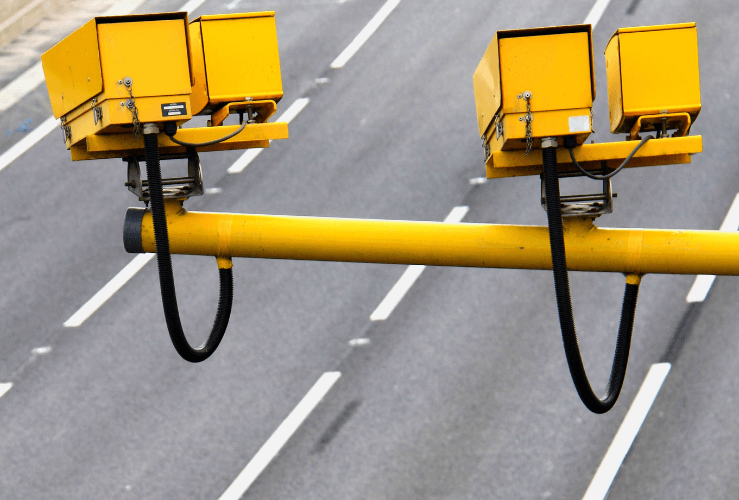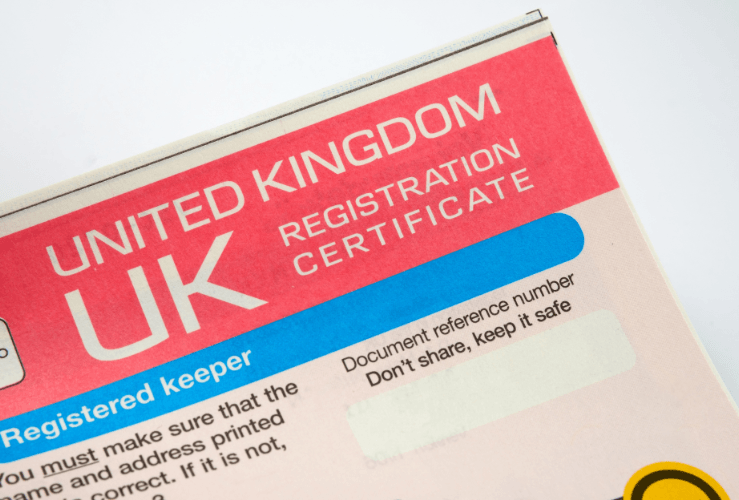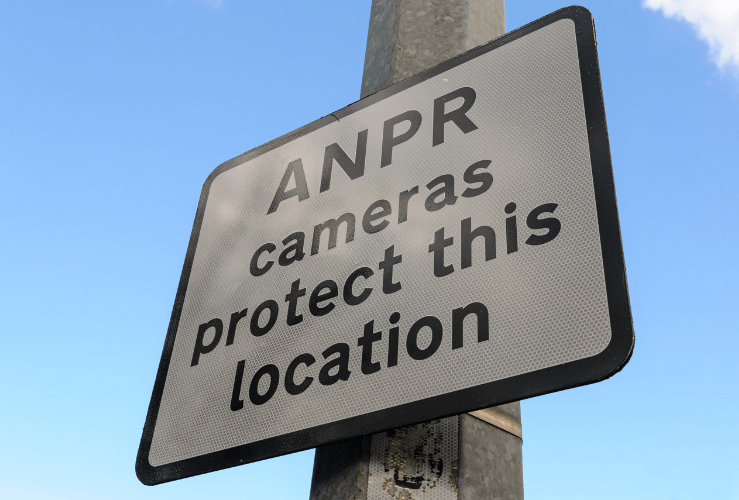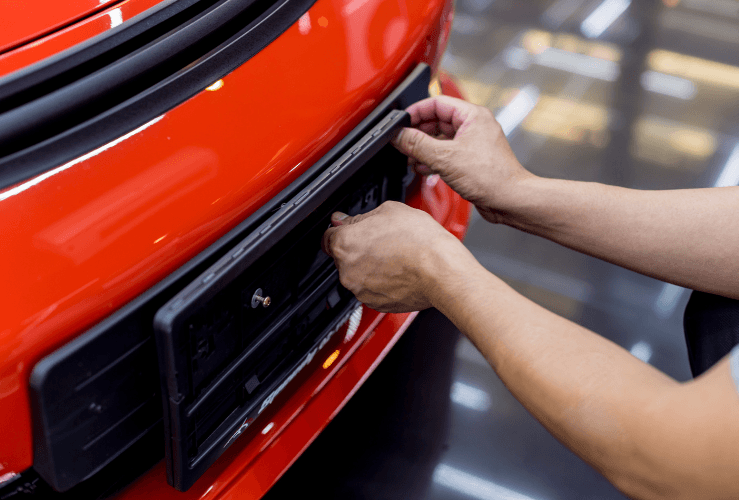Vehicle cloning has long been a serious issue in the UK - one that shows little sign of improvement.
But how to avoid being a victim of car cloning? And what should you do if you are?
What is car cloning?
Car cloning is the illegal process of taking a vehicle's identity and matching it with another car. Criminals make copies of an original vehicle's number plates, then place them on a second vehicle.
The aim is to clone cars that are insured, MOT'd, and clear of any outstanding offences.
If or when the cloned car is used for criminal purposes, it's much more difficult for police to identify and track.
When a cloned vehicle is photographed by an ANPR (Automatic number plate recognition) camera, it looks perfectly legal.
But of course, there are two cars driving around with the same number plates.
What offences may be committed in a cloned vehicle?
- Speeding offences
- Parking offences
- Using fake plates to sell a stolen car to an unsuspecting buyer
- More serious crimes like bank robberies
- Avoiding the London Congestion Charge
- Avoiding Ultra Low Emissions Zone (ULEZ) Charge
Criminals clone cars for many reasons - including avoiding paying for speeding tickets, the London Congestion Charge, ULEZ charge, or even committing robberies.
Transport for London (TfL) data from April 2022 showed an 857% increase in the number of Penalty Charge Notices (PCNs) being cancelled due to the vehicle in question being cloned.
And since the ULEZ was expanded in October 2021, there has been a 631% increase in PCNs being overturned due to number plate cloning.
However, the situation could be worse, with some car owners unable to prove their innocence, or unwilling to go through the stress of proving they weren't responsible.
In 2021, 72-year-old Marc Cramsie became a victim of car cloning and received six different PCNs, potentially costing up to £1,070. Mr. Cramsie wasn't even in the UK at the time of the alleged offences.
It took six months for Mr. Cramsie to prove his innocence.
How do criminals find cars to clone?
Criminals often identify suitable cars to clone by searching through online car sales listings - or even social media posts.
They look for a model like theirs.
The process is much easier for a criminal if a seller has not obscured their number plate from photos of the listing.

Tell-tale signs you’ve become a victim of car cloning
Any traffic offences committed by the driver(s) of the cloned vehicle will be viewed by the police and the DVLA has been committed by the actual owner, in the original car.
If this happens to your vehicle, you can expect a PCN through the letter box - or even a knock on the door from the police.
Clone clues: Speeding ticket
For example, you may receive a ticket for a speeding offence that you know for sure wasn’t you.
Speeding tickets include login details which can be used to access photos of the alleged offence.
If these photos are not of you (for example, you weren't driving at the time or in the location specified), it's highly probable the offence was committed by someone who has cloned your car.
Being wrongly accused of having committed a motoring offence could be especially stressful if you're a new driver, since receiving six points on your licence within the first six months could mean you are disqualified.
Equally, someone who already has points on their licence could be risking disqualification if they receive further points.
Unexpected parking tickets
Similarly, if you receive parking tickets that don't tally with where you parked, it's a big clue you may have become a victim of cloned number plates.
Clone clues: MOT information incorrect
In some cases, a vehicle with cloned number plates may actually be MOT'd by the criminal. So, if you notice your car MOT dates are wrong (gov.uk/check-mot-history), this could mean someone else has MOT'd a vehicle that has your number plates.
 Credit: Ascannio - stock.adobe.com
Credit: Ascannio - stock.adobe.com
How criminals clone vehicles
In order to get new number plates made by a Registered Number Plate Supplier (RNPS), a car owner needs to show their vehicle's V5C certificate and ID.
However, criminals have various techniques for getting around this, including:
- Purchasing counterfeit plates that are copies of real number plates
- Using nefarious online number plate suppliers who do not ask for evidence of ownership.
- Stealing number plates from another vehicle and use them to disguise the identity of their vehicle. Be extremely wary of any vehicle without number plates; it could well have been targeted by criminals for number plate cloning.
- Creating a fake V5C logbook
- Changing the VIN (Vehicle Identification number) by replacing parts featuring that number. This 17-digit number is also known as the chassis number.

What to do if you think your car has been cloned
If you believe your car has been cloned, contact the ticket and speeding office of your local police force.
Return the ticket, explain the situation and provide as much evidence as you can. ANPR images from a speeding ticket may show details of the offending vehicle that don't match yours.
For example, the cloned vehicle may have new-style number plates, while your vehicle still has the old-style number plates, or the cloned number plates may be in a different position to the original number plates.
Keep the police reference number safe.
Report cloned plates to DVLA
You should also report suspected cloned plates to the DVLA and give them the police reference number.
Tell your insurer your car has been cloned
Inform your insurance provider that your vehicle has been cloned.
It's important to proactively inform as many organisations as you can - as soon as possible.
A relatively quick way to help ensure you don’t get blamed for any more offences committed in the cloned vehicle is to buy new private registration plates.
While buying new plates will cost you money, it may provide some peace of mind.
What if I accidentally buy a cloned car?
Unfortunately, if you purchase a cloned car, you will almost certainly lose the car and the sum paid for it. The police will also quiz you about the seller.
If a car is being sold without a V5C registration document, alarm bells should be sounding. That said, it's possible to make fake V5C documents.
Your insurance policy may include legal assistance to help recover lost money if it's considered feasible; check the policy wording.
Signs a car for sale may be cloned
- V5C not present
- V5C poorly printed/doesn't have a DVL watermark when you hold it up to the light
- Car is suspiciously cheap
- The seller asks you to view the vehicle at an address different from the one listed on the V5C document
- Request the registration number, make, model, and MOT test number, then check this matches DVLA information. If not - or if the seller seems reluctant to give this information - there could be something untoward going on
- Ensure the vehicle identification number (VIN) and engine number match the v5C logbook
- Seller asks for cash payment only (impossible to trace)
If you notice any of the above issues while looking at a car for sale and believe it may be cloned, contact the police when it is safe to do so.

How to prevent your car from being cloned
- If you are selling your vehicle online, or simply posting photos of it to your social media accounts, be sure to blur out/obscure the number plate.
- It is a good idea to keep a photo of your rear number plate. This can then be used to differentiate your plates from those of any cloned car (e.g. identifiable scratches/damage and number plate style).
- Invest in tamper-proof number plates - to help deter criminals from attempting to remove them.
Act if you believe your vehicle has been cloned
It can be time consuming and stressful to dispute parking charges and speeding tickets with local councils - who can be slow to respond and may require a lot of evidence.
However, if you suspect your vehicle has been cloned, it’s better to act sooner rather than later.
Failure to act could mean more charges and tickets are issued against you, or even that the cloned vehicle is used for far more serious offences - such as robberies or other organised crime.
Your local Citizens Advice Bureau may be able to offer further advice and support.





